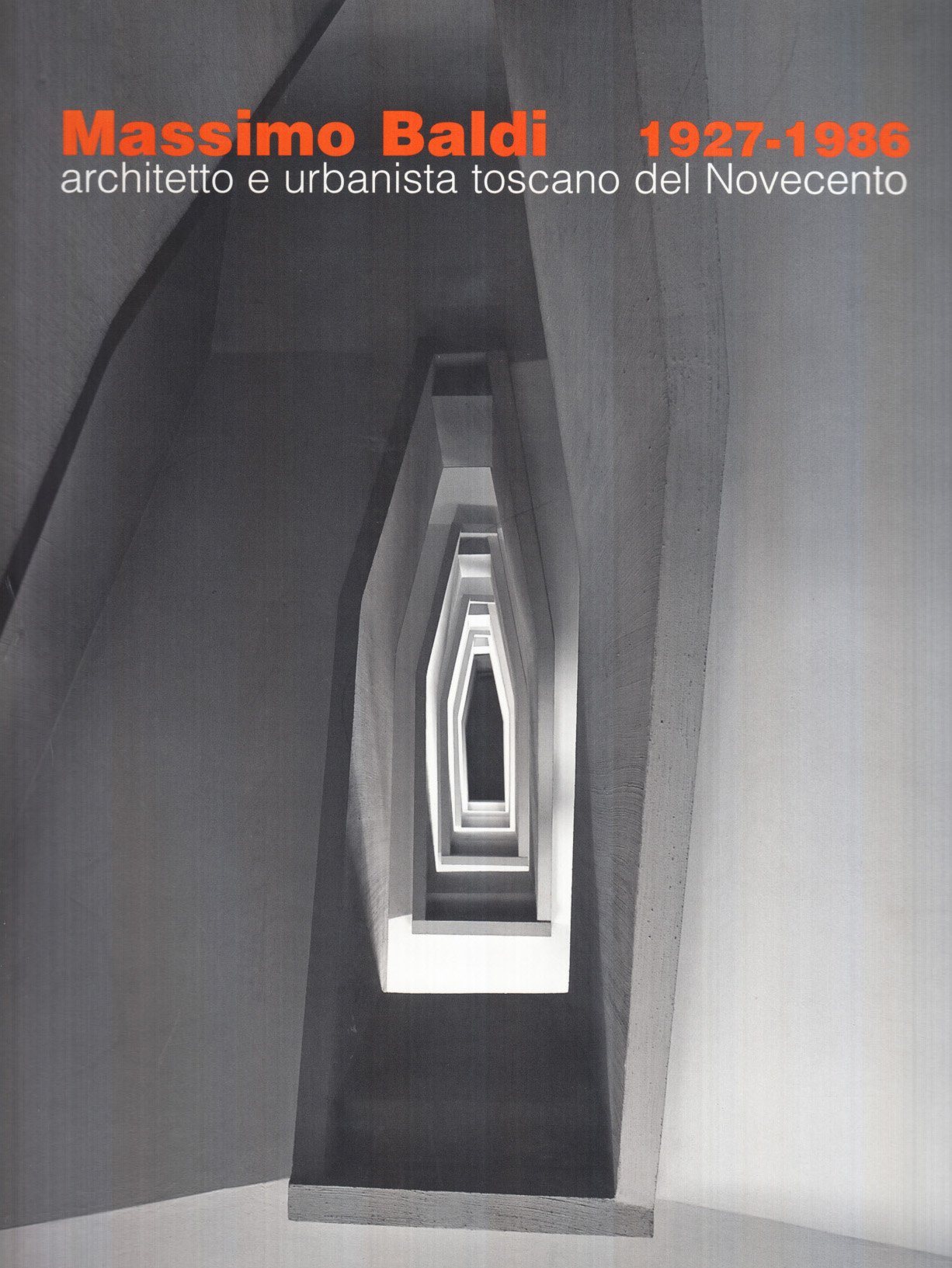Library

"The Indian Century" by Dinesh Dhamija, Finitio Publishing, 2024
The Indian Century – Unveiling the Rise of a Global Superpower
Embark on a journey through India’s meteoric ascent to becoming the economic powerhouse of the 21st century with author Dinesh Dhamija. In a world grappling with economic uncertainties, ‘The Indian Century’ illuminates the path to prosperity, answering burning questions and addressing the concerns of global citizens seeking to navigate the dynamic landscape of emerging opportunities.
About This Book:
★ Insider Insights: Gain exclusive access to the mind of Dinesh Dhamija, the visionary behind ebookers.com, providing unparalleled insights into India’s economic and political rise.
★ Strategic Opportunities: Discover where the greatest opportunities lie for entrepreneurs, investors, and businesses looking to thrive in the wake of India’s unprecedented growth.
★ Global Impact: Understand how India’s surge influences the global balance of power, creating ripple effects that touch every corner of the world.
★ Historical Parallels: Drawing parallels with past global superpowers, learn why world leaders, akin to Jeff Bezos, have crowned this era as “India’s Century.”
★Practical Guidance: Navigate the complexities of investment, trade, and employment in a changing world, armed with practical strategies tailored to the Indian Century.
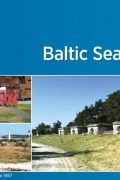
"Iron Curtain Trail Baltic Sea Cycle Route: From Riga to Lübeck" by Michael Cramer, 2017 (new edition available)
To properly live, breathe and experience history – that is the goal of the “Iron Curtain Trail”. From the Barents Sea to the Black Sea, this guide takes you along the Western border of the former Warsaw Pact countries, all the way across Europe. The route does not just connect European culture, history and sustainable tourism but it also provides historically-interested cyclists with some spectacularly beautiful and varied landscapes and unique habitats that were able to emerge in the former border strip, which is today the European Green Belt. The maps in the revised edition are more accurately scaled at 1:85,000. This volume describes the 1,700-kilometre-long part of the route along the Baltic Sea Cycle Route from Riga to Lübeck.
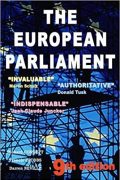
"The European Parliament" (10th edition) by Richard Corbett (co-author with Darren Neville and Francis Jacobs since the first edition), end of April 2024
Summary of the 10th edition will be available soon.
Summary of the 9th edition: An instant classic when first published in 1990, this has since then been the premier textbook on the European Parliament. This 9th edition was published in 2016 and is the most recent available. The book systematically and clearly covers every aspect of how the Parliament is elected, its internal structures and procedures, its powers and how it relates to the other EU institutions. It is written by insiders with vast accumulated experience of how the Parliament really works, with extra input from dozens of specialists within the Parliament.
“An invaluable guide to the institution’s history, power and politics. It explains both what drives the Parliament internally and the dynamics of its increasingly central role in the EU political system as a whole.”
Martin Schulz, President of the European Parliament
“This book explains with utmost clarity how it all works. It is an indispensable tool for anyone interested in or dealing with the European Parliament.”
Jean-Claude Juncker, President of the European Commission
“The Parliament ensures that the full pluralism of the political diversity within each member state is brought into the heart of EU decision taking… This book is the authoritative guide to the European Parliament.”
Donald Tusk, President of the European Council
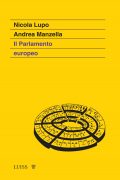
"Il Parlamento europeo" by Andrea Manzella and Nicola Lupo, Luiss University Press, 2024
In 1979, with the election of its parliament, the European community became democratically adult. For the first time, an international organisation became an ‘order’, establishing a direct link with the voters. For a long time, European elections were regarded as an event of secondary importance: a thermometer to measure the internal political temperature in individual countries. Today, however, they have become crucial in determining the European and national political direction, in a fierce confrontation between supporters and opponents of European integration. Parliament has thus become the privileged seat of the most extraordinary democratic experience in recent history, which this book, in a revised and updated edition, helps to understand.
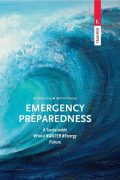
"Emergency Preparedness" by Paul Rübig and Achim Kaspar, Trauner, 2023
The demand for water, one of the fundamental necessities of life, is growing at a faster rate than the world population. Agriculture and other industries are becoming even more intensive water users, climate change has already had immense effects all over the world, and competition between different user groups is increasing over time. At the same time, billions of people all over the globe still don’t have access to safe drinking water and safely managed sanitation services. But we can learn to do better. In order to do so, the essays in this book assess current challenges and highlight the need for more water-efficiency and customer-driven technological innovation in various fields. They also provide solutions, show best-practice examples, and find answers to some of the most pressing issues in water management around the globe. The dialogue about current challenges in water and wastewater management has only just begun and must be brought to the forefront for the chance at a sustainable water future.
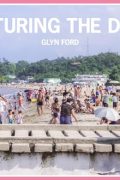
"Picturing the DPRK" by Glyn Ford, Spokesman Press in the UK, 2023
North Korea, or as it prefers to be known the Democratic People’s Republic of Korea (DPRK), is portrayed as mysterious and malevolent with its leadership denounced for its military enterprise and human rights abuses. It is no one’s poster boy for anything positive, prejudged as perennially guilty of the worst actions for the worst reasons. Yet, hidden behind this facade are the people of the DPRK as depicted in these photographs taken by Glyn Ford during some 50 visits over recent decades. Outside the circle of family and friends who hold the reigns of power and feature so prominently in the coverage of the tabloids and TV, there are 26 million men, women and children like us. These millions have their hopes, dreams, and fears that march on a treadmill that rarely stops, save intercut with rest and play. Picturing the DPRK puts these people and their places centre stage. They, and the rest of the people on the Peninsula, will be the hapless victims of any attempt to force regime change or any inadvertent stumbling into war. The lessons of Iraq, Libya and Syria have taught the world that applied idealism in the absence of realism is the road to hell in a handcart.
Glyn Ford was a Member of the European Parliament for 25 years (1984-2009). Much of his focus was on the International Trade and Foreign Affairs Committees, particularly with respect to East Asia. He has travelled to the DPRK some 50 times since his initial visit in 1997. Glyn continues his engagement with Pyongyang through the Brussels based NGO Track2Asia. He is a Board Member of the Pacific Century Institute and has published North Korea on the Brink: Struggle For Survival (2008), Talking to North Korea (2018) – both translated into Korean – and Riding Two Horses; Labour and Europe (2022) – available from Spokesman.

"SAFARI Viaggio nella vita di italiani in Africa" by Cristina Muscardini, Gruppo Albatros il Filo, 2023
Safari: Journey through the Lives of Italians in Africa explores the stories through the experiences of Italian men and women who have made Africa their home. The word ‘Safari’ means ‘journey’ in Swahili, and this book fully embodies the essence of that word: the idea that our lives are constantly moving, evolving, and that every encounter and every shared experience leaves a lasting imprint on our souls. The author introduces us to fascinating characters who have chosen to radically change their lives, sharing their joys and daily challenges. These Italian men and women built communities and experienced the beauty and complexity of Africa. In Safari: Journey through the Lives of Italians in Africa, travel is a powerful metaphor for life itself: through encounters with others, we are able to enrich our own experience and the lives of others. This book invites us to reflect on our own personal ‘safari’ through life, our ability to adapt and embrace new cultures, and the beauty of sharing our stories with the world.
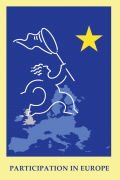
"Participation in Europe" by Monica Baldi and Michael Hindley, FMA_HAEU 2023
The book explores ways to enhance civic education and envision a European landscape where citizens are not just spectators but active architects of their democratic future. The FMA_HAEU entitled “Participation in Europe”, edited by FMA Vice-President, Monica Baldi, and EP to Campus coordinator and FMA Board Member, Michael Hindley, is based on contributions of speakers and guests during the hybrid conference of June 16 2023. This conference, organised by the European Parliament Former Members Association, Erasmus+/Indire and the Historical Archives of the European Union, examined three concrete programmes developed to increase the understanding and participation of young people in Europe. Read the full publication here.

"The great book of Moroccan civilization" by Jean-Claude Martinez, 2023
This great book of Moroccan civilization presents Morocco, a modern country rooted in a thousand-year-old civilization. In the form of an encyclopaedic dictionary of 680 pages, it presents us in 400 entries, from Almohads to the International Zone of Tangiers, a nation proud of its history, close to France, attached to its king and resolutely turned towards the future.

''Constitutional Change in the European Union'' by Andrew Duff, 2022
Europe’s future is contested between those who want to integrate further, those who prefer things to stay as they are, and those who would retreat into nationalism. These divisions impair the government of the European Union and weaken its ability to shoulder more responsibility for its unstable neighbourhood.
This open access book analyses the EU’s evolving constitution, arguing that the lack of effective federal government lies at the heart of its problems. It recommends reforms for each EU institution, including those involving treaty change. It makes the case for a unified executive, a more legitimate legislature, and the introduction of a federal treasury and supreme court. It proposes a fresh category of affiliate membership underpinned by a new European security council that would overcome the historic division between the EU and NATO.
The book is essential reading for practitioners and students of European integration.

''Forbidden images, censorship in the XXI century'' by Yves Frémion, 2022
The image – press cartoons, illustrations, comics, cinema, TV, photography, painting, graphic design… – is more than ever the target of totalitarian rage throughout the world. No country, from the most democratic to the most authoritarian, is spared by this phenomenon. In addition to the classic censorship by the world’s leaders and powerful, which was “the norm” at the time of the first “Forbidden Images” published in 1989, there is now the censorship by all the pressure groups, sometimes unleashed to the point of murder, and by social networks. Since the new millennium, thousands of images have been attacked, destroyed, prohibited, and their authors and distributors harassed, condemned, forbidden to work or even murdered. This book lists what has shocked, irritated or infuriated the censors of all stripes, be they political, religious, spokespersons for associations or public opinion, over the last 20 years. It is also a tribute, through this non-exhaustive but often staggering inventory, to these men and women who dare, sometimes at the risk of their lives, to defy all censorship and claim their freedom of expression.

"Masks" by Mariela Baeva, 2022
Having lost Ina to cancer, Villi confronts memories linked to their life before and after Bulgaria’s transition to democracy in the 1990s. Will he overcome the fact that their son is addicted to drugs? El, their daughter, is overwhelmed with emotion in the face of the tragedy in the family. What is her and her family’s role in moving forward? The accelerating deterioration of Bulgaria-Türkiye relations in the Eighties and the resistance of the ethnic Türks in Bulgaria deliver a blow to national security and the political system. How does this subline interact with the main story line? The author creates insight into the minds of her characters and endeavours to balance shifting perspectives, dramatic irony, suspense and action.
Mariela was born in Sofia, Bulgaria. She graduated in English and Bulgarian philology and EU Law, International Finance and Relations. She has lived, worked and done research in Luxembourg, Belgium and Greece. She has been named in the first Global Diversity list of The Economist for her work in the sphere of human rights and social inclusion and has contributed to The Parliament magazine. She is a former member of the European Parliament and member of Pen International Women Writers’ Committee. She is active in swimming and jogging and takes part in global initiatives to raise funds. One of them is Theirworld, Your Walk, an initiative to raise funds to help every child have a safe place to learn.
The book is available here: https://www.europebookstore.com/products/masks-mariela/
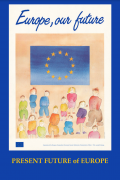
"Present Future of Europe" by Hans-Gert Pöttering, Monica Baldi and Teresa Riera Madurell, FMA_HAEU 2022
The book “Present Future of Europe“, edited by Hans-Gert Pöttering, Teresa Riera Madurell and Monica Baldi, and produced by FMA was printed by EUI in 2022. The publication reports the proceedings of the High-Level conference “The Future of Europe Starts Today” held in Florence, on Monday 21 March in the historic Villa Salviati, at the European University Institute.
The book contains the FMA proposal for the Conference on the Future of Europe “Our European Union – Time to be Bold, to Act, and to Deliver”, as well as relevant contributions written by important personalities from the institutional, political and academic world. The common interest found in each contribution, both of an institutional and political and / or academic nature, is to reach a shared action of the European Union, by underlining the strengths and, at the same time, by highlighting the weakest elements to strengthen the European democracy. Several topics were discussed, such as the abolition of the right of veto, the replacement of the unanimous vote by the qualified majority vote, transparency in the actions of the European Council and the attribution of greater powers to the European Parliament. Furthermore, the guarantee of the rule of law, energy
and environmental policy, culture, joint action on the subject of defense, security and immigration, foreign and cooperation policy, the revision of the Treaties and the reform process of the architecture of the EU.
This book was part of the High-Level conference: The Future of Europe starts today.

‘’Nos monstres’’ by Yves Frémion, Rouquemoute Publishers, 2022.
They belong to all professional categories, class, geographical location, skin color. They are urban or rural, rich or poor, beautiful or ugly, intelligent or moronic, nice or unpleasant, powerful or mediocre, believers or atheists, native French or immigrants, they vote left or right, no place in social life is spared their presence. They are everywhere. Because here it is: they are monsters. Contemporary monsters, disguised as so-called “normal” people. Yves Frémion’s description of them is brief, clear and well argued. The cartoonist Flavien Moreau gives you a better picture than a photo: a sketch where his cruel line spares nothing of their cowardice, their malice, their cynicism. But this is only an example, it is possible that their twin, with a very different face, is your executioner, so pay close attention.
Author of more than one hundred books, former pillar of Fluide Glacial, editor of Barricade and Papiers Nickelés, Yves Frémion has been sharpening his pen for more than fifty years. Winner of the BNF’s Young Talent grant for press cartoons, Flavien Moreau has published in Siné Hebdo, AAARG! and Causette.
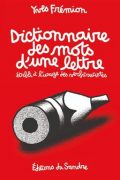
''One letter word dictionary’’ by Yves Frémion, Rouquemoute Publishers, 2022.
As its title indicates, lists the French words having only one letter. Our dictionaries contain many one-letter words. It was time to list them. Yves Frémion did it, not without calling on a few friends, some of whom reacted with finesse. Here is the result. Of course, except for a few verbicrucists and scholars titillated by the curiosities of vocabulary, this book is of no use. That’s why its need was generally felt. Cover by Killoffer.
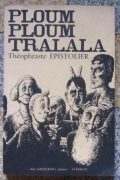
"Sous pseudonyme (Th. Epistolier)". Yves Frémion, 2022.
Under a pseudonym (Th. Epistolier), the third volume of his series on current events where the news of the year (2022) are reduced to the good ones, the bad ones having been obscured. The series favors very long titles, here: ‘All our advisors are currently online, we are doing everything possible to reduce your wait….’ (Ateliers du Tayrac)

"Thoughts are free - my life in business and politics " by Wolf Rüdiger Klinz , 2021
Wolf Rüdiger Klinz was born in 1941 to a German father and an Austrian mother. His biography is an exciting retrospective of the eventful life of a convinced European in international business and politics. Klinz provides a variety of insights into his thoughts and actions. Whether as a partner at McKinsey, Chairman of the Board of the Hartmann & Braun Group or President of the Chamber of Industry and Commerce in Frankfurt am Main: liberal basic principles, lifelong learning and an optimistic world view were equally driving forces and constants for all of his activities. As a member of the board of the Treuhandanstalt, Klinz played a key role in the transformation of the GDR’s state economy. And as a member of the Free Democrats in the European Parliament in Brussels and Strasbourg, he put himself at the service of European integration. With his clear commitment to Europe and his plea for courageous and consistent participation in the European idea, Wolf Rüdiger Klinz wants to inspire young people in particular. They are the future. We should support them to the best of our ability.
This book is only available in German (original title “Die Gedanken sind frei: Mein Leben in Wirtschaft und Politik”).
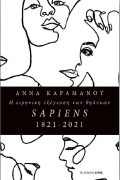
"The peaceful uprising of the female sapiens " by Anna Karamanou
My book offers a fascinating historical journey starting from the revolution of 1821 against Ottoman Empire and ending with the pandemic and the greek MeToo movement 2021. It provides basic historical, political and gender knowledge about the 200 years of the modern Greek nation-state. It examines the great historical events, the role of the political and military leadership, the triumphs and national calamities, the role and the situation of women, as well as the ideas that shaped modern Greece.
Amidst the turmoil of politics and historical events, the reader follows the peaceful revolt of female sapiens who, under the banner of universal values, are claiming their fundamental human rights and gender justice. It records the influence of the European and Modern Greek Enlightenment, the role of the Greek Diaspora and the West, as well as the dynamic participation of women in the victorious liberation wars and in the subsequent nation building. Historians have ignored the struggles for gender equality and the contribution of women in the formation of modern Greek state.
The book reveals the silenced feminist struggles and the important contribution of women to the expansion and institutional foundation of the modern Greek state by the leaders Ioannis Kapodistrias, King Otto, Charilaos Trikoupis and Eleftherios Venizelos, up to the modern European era. It offers plenty of material, for pride and tears, for reflection and self-knowledge! The positive role of Europe and the gradual Europeanisation of Greece, especially after the accession in 1981, are highly emphasized. The book is well documented and unique in its kind.
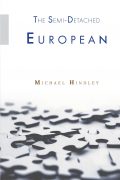
"The Semi-Detached European" by Michael Hindley, Manipal University Press, 2021
The European Union has emerged as a world economic power from the ashes of the Second World War Starting with the post-War settlement, the book takes a broad and informed view of Britain’s changing relationship with this dynamic development. The successful attempt to revive democracy and establish economic recovery in Western Europe was fuelled by Franco-German reconciliation but Britain remained benevolently aloof. Britain’s own recovery was not successful as that of the emerging “Common Market”, and so Britain’s political elite looked to Europe to replace the markets it was losing worldwide only to be spurned by her long-time rival France. Thereon, Britain played an influential role, especially in the development of the “internal market”. However, Britain never quite lost the tag of being semi-detached – wanting to take the benefits but always wary of surrendering national sovereignty for the alleged greater good. This book reviews the vital role played by major actors in Europe’s integration, including the decisive duel between Margaret Thatcher and Jacques Delors about the nature of the Europe. It provides an assessment of the epoch-making events of the fall of Berlin wall, which opened the possibility of a reunited Europe.
In this book, the author also describes his own “Europeanisation” as a student, then as an active politician who engaged in Europe’s transformation first-hand.
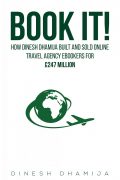
“Book It!” by Dinesh Dhamija, Austin Macauley Publishers, 2021
Entrepreneur, politician and philanthropist Dinesh Dhamija emerged from the recession-hit streets of 1970s West London to create, build and sell ebookers – one of the world’s premier travel agencies and a pioneer in the millennial dot.com boom, earning himself a £100 million fortune. How did this son of an Indian civil servant, with no connections to the travel industry or technical background, end up with one of the most successful internet companies in Europe? How did ebookers withstand the serial catastrophes of the dot.com crash of 2000, the global travel freeze after 9/11 and the disruption of the US invasion of Iraq in 2003, outlasting and out-performing its rivals? In his candid, buccaneering autobiography, Dhamija looks back to his globe-trotting childhood, his Cambridge University education and the hair-raising, energising, eyepopping rollercoaster ride of his business career. Not content to retire gracefully into anonymity, Dhamija then focused his energies and talents on politics, where his insider tales from Brussels and the Liberal Democrat party expose the looming Brexit disaster. His insights into philanthropy, investment and entrepreneurship offer a rich diet of advice, observation and storytelling, spiced with anecdote and perceptive details. Among the outstanding businessmen of his generation, Dinesh Dhamija’s life story is one of adventure, risk-taking, ambition and unique achievement across multiple fields.
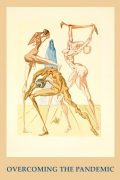
“Overcoming the Pandemic” by Monica Baldi and Flavia Franconi, HAEU 2021
The book “Overcoming the Pandemic”, edited by Monica Baldi and Flavia Franconi and produced by FMA was printed by HAEU in November 2021. The publication reports the proceedings of the conference held on September 23, 2021, in Florence, in the European University Institute on Gender Medicine and the consequences of the pandemic: “How to overcome the Covid-19 pandemic and its consequences”, organized by Women20 and FMA with the collaboration of the Historical Archive of the European Union, on the occasion of the Italian presidency of the G20. The book contains both the Charta de Florentia, which indicates some recommendations addressed to governments, as well as some important articles, especially written, by eminent personalities from the world of institutions, politics, culture and science. The common thread that unites the succession of interventions is the empowerment and adoption of a gender approach, as a necessary tool to analyze, and consequently respond to the realities created by the health emergency, and beyond, from medicine to work. market, social sphere, political and institutional dimension. Therefore, implementing gender medicine with the aim of putting the person at the center with their past and present experiences is the only way to achieve equity in health protection. A step to curb the pandemic and the consequences of isolation, through shared and inclusive actions, taking into account the specific needs of women and men, through gender-sensitive research capable of producing a circular and productive development attentive to the environmental Issues.
This book was part of the conference: How to overcome COVID-19 pandemic and its consequences.
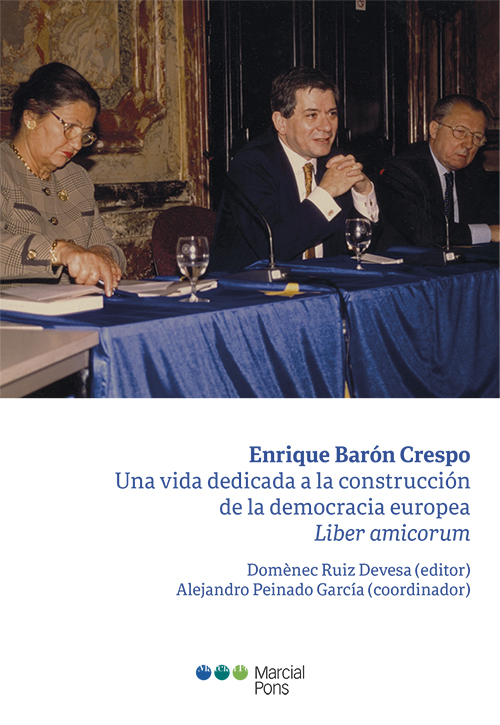
“Enrique Barón Crespo: a life dedicated to building European democracy” (Liber amicorum). Editor Domènec Ruiz Devesa, Marcial Pons, 2021
The Union of Europeanists and Federalists of Spain (UEF Spain) together with the Spanish Federal Council of the European Movement (CFEME) have promoted the elaboration of this liber amicorum in honour of Enrique Barón, on the occasion of the 75th anniversary of his birth, to remember his legacy in favour of democracy and social justice in Spain and in the European Union.
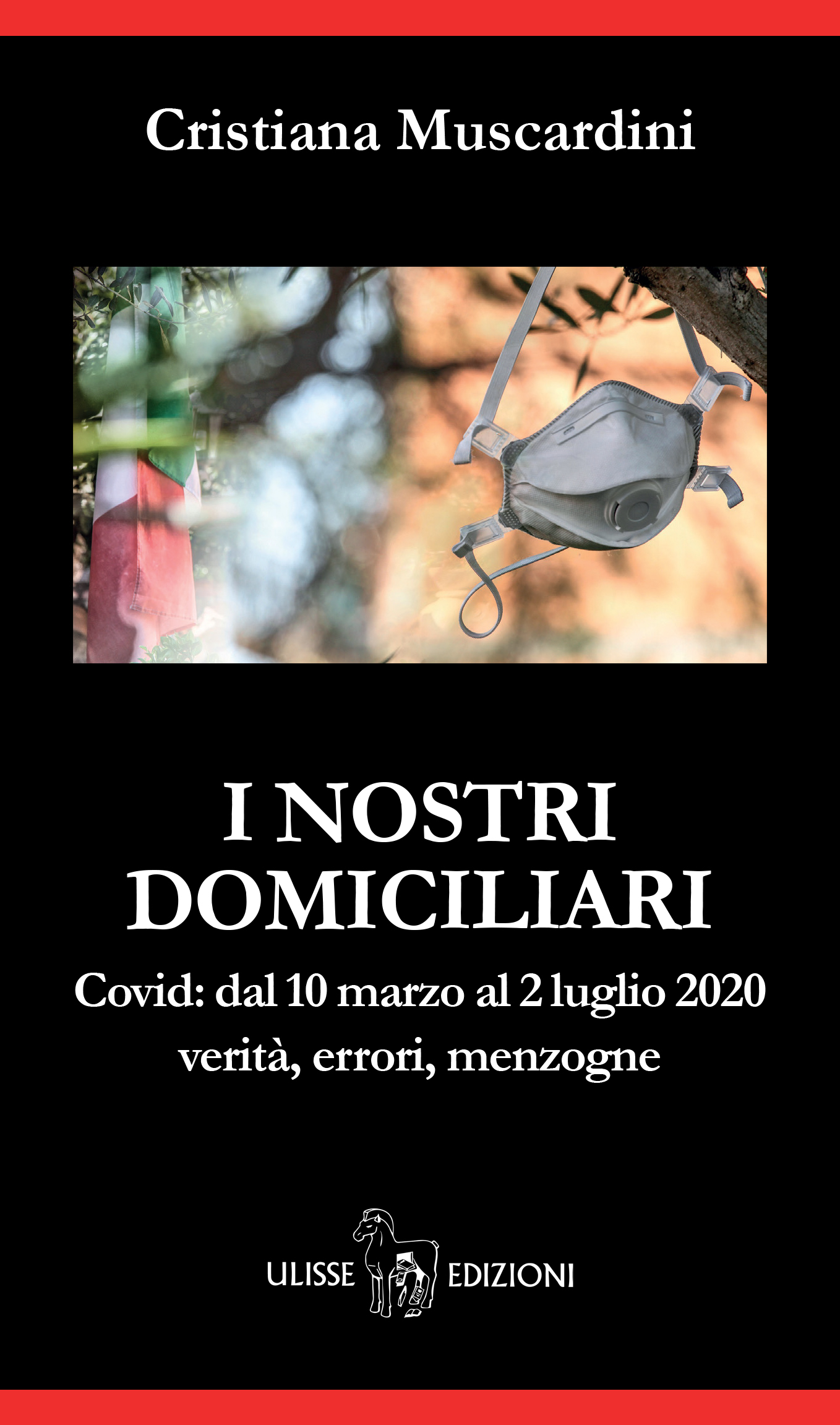
“I nostri domiciliari" by Cristiana Muscardini, Ulisse Edizioni, 2021
Cristiana Muscardini’s book, I nostri domiciliari – Ulisse Edizioni, 2021), is the account of the facts and statements of the days of the pandemic, from the beginning of the closure until 2 July 2020. The author adds her consideration to the facts, numbers, statements told by the mass media. Every day she dedicated many hours to make an account of what was happening so that the memory was not lost and we could learn from mistakes. In the book you will also find so many official statements that later turned out to be wrong, many statements denied by the facts, and you will remember the pain that could have been avoided, at least in part. The numbers do not speak for themselves but the voice of reality accompanies them.
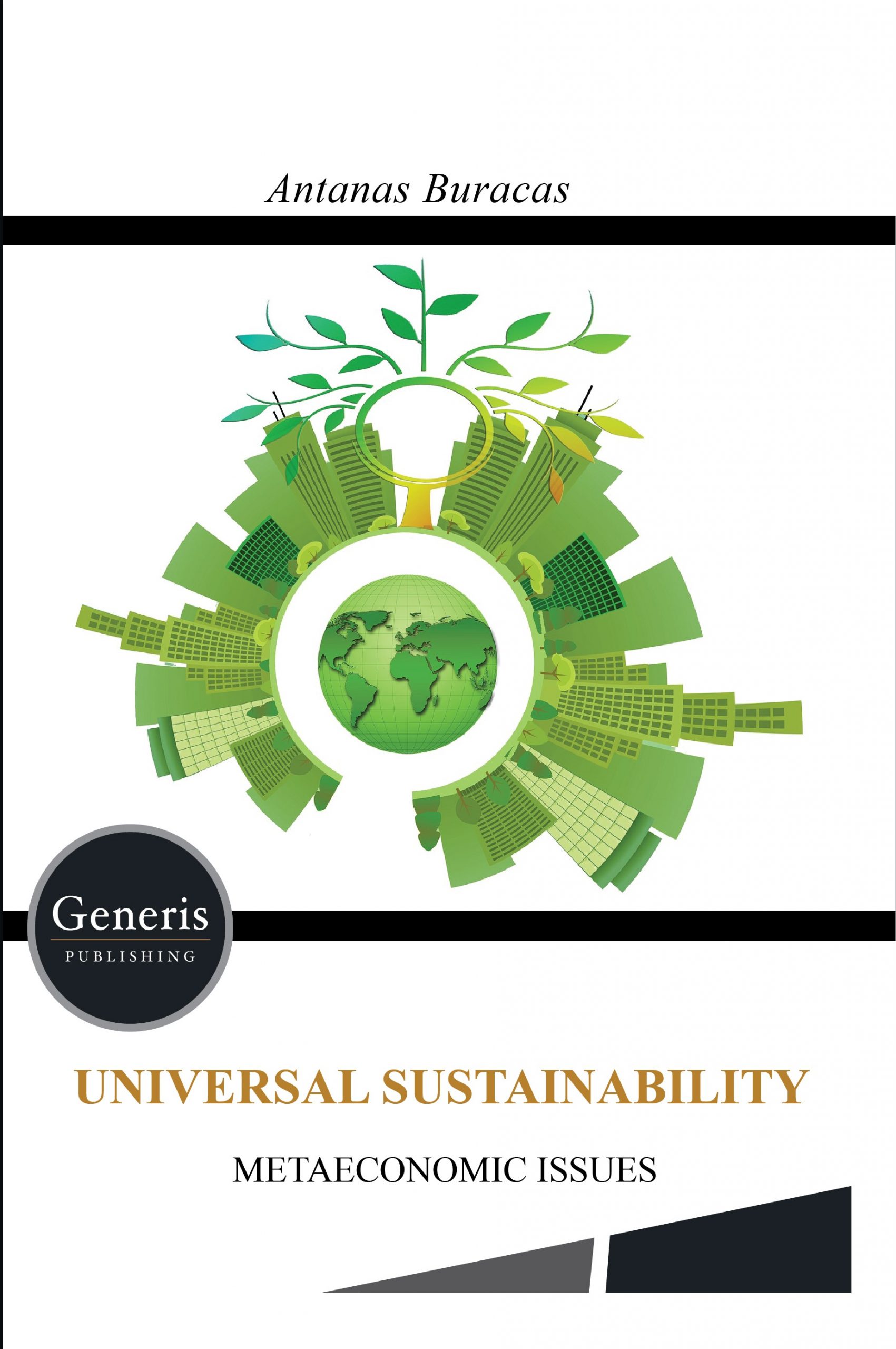
“Universal sustainability: Metaeconomic issues” by Antanas Buracas, Aleksandras Vytautas Rutkauskas and Margarita Starkeviciute , Generis, 2021
The book is dedicated to the universal sustainability approach under UN initiative outlining the World in 2050 policy tasks. The transfer within half a century from Peccei‘s green sustainability notion to universal sustainability concept was of substantial metatheoretical importance and influenced wide metaeconomic multicriterial researches.
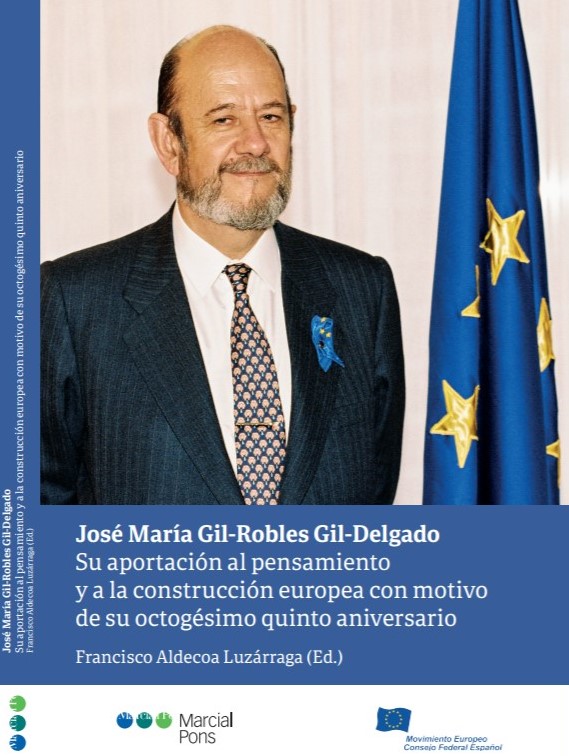
“José María Gil-Robles Gil-Delgado. His contribution to European thought and construction on the occasion of its eighty-fifth anniversary” by Francisco Aldecoa, Marcial Pons, 2021
The European Movement has promoted the elaboration of this liber amicorum in honour of José María Gil-Robles Gil-Delgado, on the occasion of the eighty-fifth anniversary of his birth, due to the fact that his life has been linked to the European Movement since his youth and since the “Munich Contubernium” through his father, and later in the Spanish Association for European Cooperation (AECE), and later, since CFEME moved to Madrid once the Spanish Constitution was approved, he has always been linked to it, even when he was President of the European Parliament, where he defended our common project.
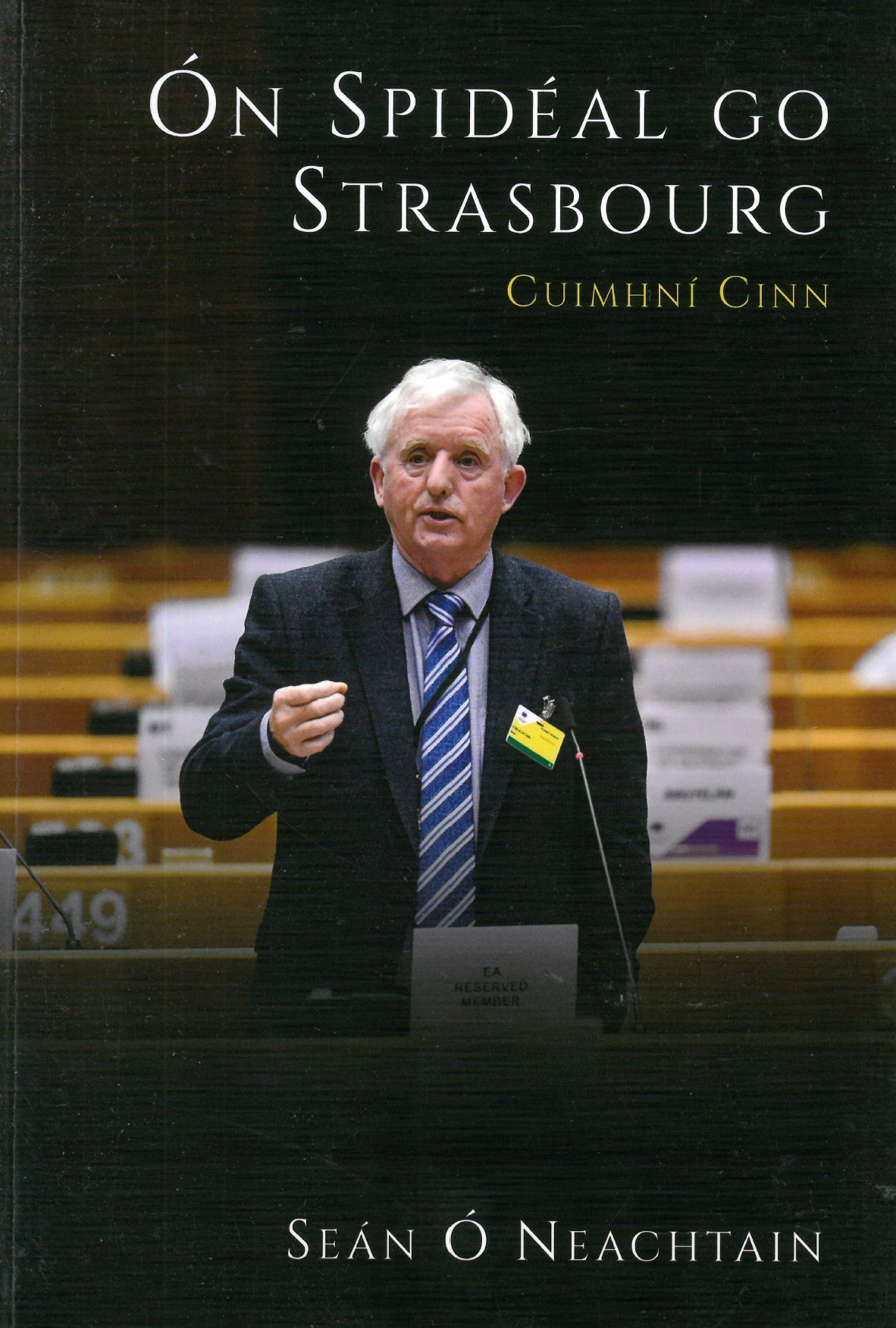
"From Spidéal to Strasbourg". Seán O Neachtain, 2021
They say that politics is always local. Seán Ó Neachtain first entered politics because of the lack of a public water system in his local area of Spiddal. His first years as a community activist on the local committee and as the secretary of the local chapter of Fianna Fáil was where he learned about campaigning for community issues. From there, he was invited to stand in the local elections for the Galway County Council in 1979 and a few short months later he was asked to stand in the first election for Údarás na Gaeltachta. That started a period that would last 30 years in which he served as an elected representative in public life. He stood in nine elections, three county council, four Údarás na Gaeltachta and in the elections for the European Parliament.
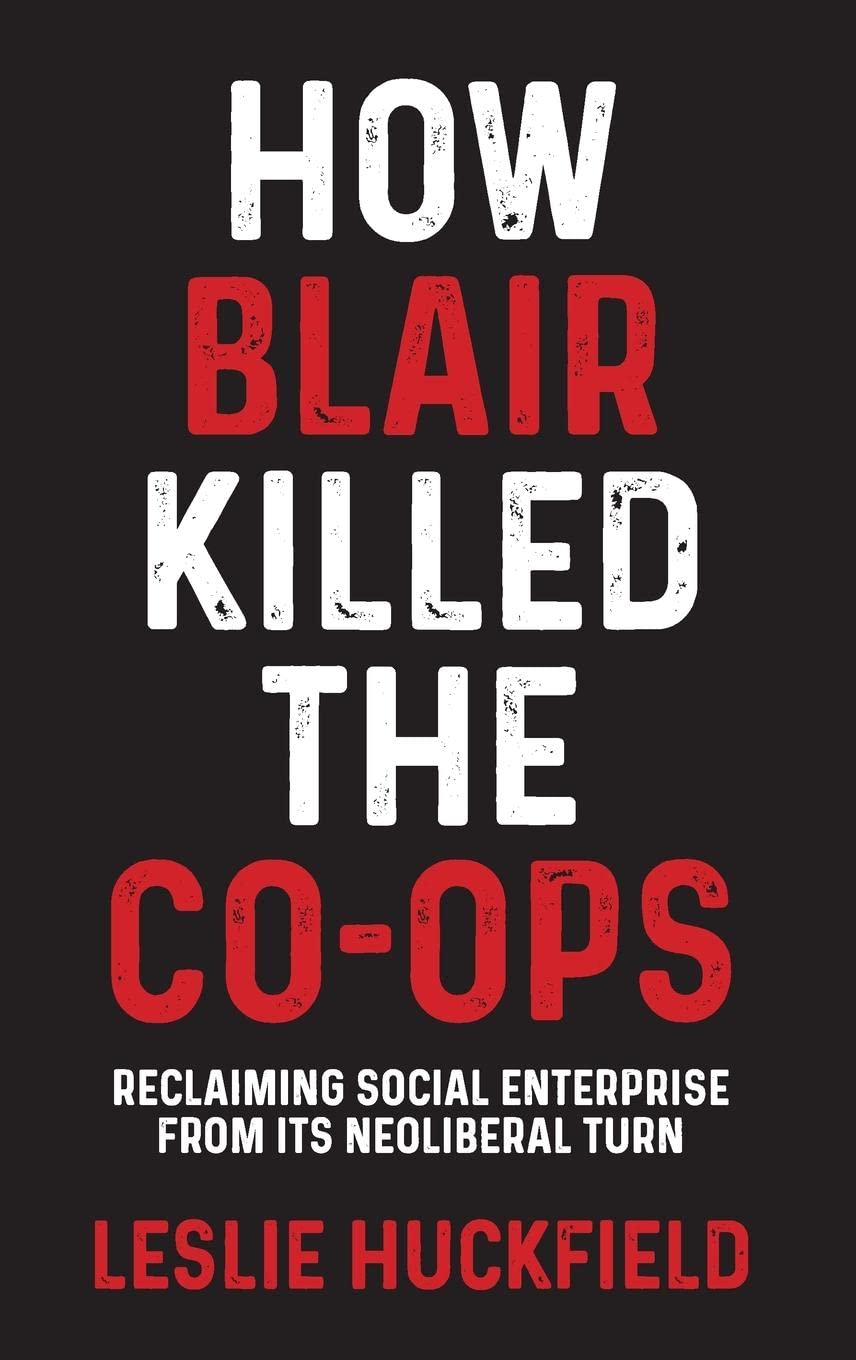
"How Blair Killed the Co-ops", Leslie John Huckfield. 2021
Social enterprise and third sector activity have expanded into a prolific area of academic research and discourses over the past twenty years, with many claiming their origins rooted in Blair, New Labour and Giddens’ “Third Way”. But many academic contributions lack the experience of policy implementation and do not access the wealth of grey, legacy and public policy literature from earlier periods that support different interpretations. Since most make few references to developments during the 1970s and 1980s, their narrow focus on New Labour from 1997 onwards not only neglects real antecedents, but miscasts the role of social enterprise. During a key political period from 1998 to 2002, Blair’s New Labour Governments forced through a major conceptual shift for social enterprise, co-operative and third sector activity. Many structures, formed as community responses to massive deindustrialisation in the 1970s and 1980s, were repositioned to bid against the private sector to obtain contracts for delivery of low cost public services. Based on previously unseen archival materials and interviews with key players between 1998 and 2002, when major social enterprise and third sector policy changes occurred, Huckfield offers an alternative narrative of social enterprise in the UK, showing how local communities have been denied the restoration of local economic and social democracy.
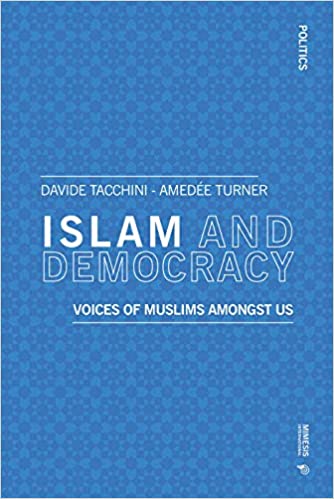
“Islam and Democracy. Voices of Muslims Among Us” by Amédée Turner and Davide Tacchini, Mimesis International, 2020
During the last six years, a team of scholars, researchers and religious leaders in Europe and the USA worked tirelessly, organising over seventy discussion groups that included members of the local Muslim communities. This volume presents for the first time the result of their work, developed in collaboration with the Anglican Observer to the United Nations. All discussions were designed to explore different views, rather than to reach a common position. The overall aim of the project is to provide a window on the rich and diverse world of “Western Islam”, by connecting directly with the everyday life of Muslim citizens in Britain, France, Italy, Germany, Spain, the United States and Canada.

“Walking the COVID Tightrope: There is always hope in the end” by Marion Verweij and Bodil Valero, Independently Published, 2020
“In the midst of all the mess we’ve lived through we realised that we’re all feeling it differently. Corona is not only statistics. It’s about ordinary people. So we have gathered a story about young, middle aged and old people, from small apartments or the countryside, in war or conflict, under occupation, from health care and affected persons, migrant workers, undocumented, asylum seekers. A bit of everything and from all continents. Some of them are anonymous, and from some countries they didn’t dare even to write anonymously. The stories are written describing the first 9 month of lockdown.”
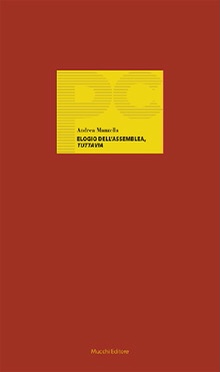
“ In praise of the Assembly, however (Elogio dell'Assemblea, tuttavia) ” by Andrea Manzella, Mucchi, 2020
“This incisive booklet – written in the midst of a pandemic, while governments are following one another in adopting regulations that are causing <a significant problem of democratic quality> – is an intense warning to the political world to restore the strength and centrality of parliaments: “leaving the old rooms”, facing challenges, innovating in tune with the European Union. The horizon outlined is that of giving a breath of fresh air and a soul to a struggling democracy. It is precisely in the vitality of the parliamentary assemblies that democracy can find its regenerative strength.”

"A European conscience: Hans-Gert Pöttering - Biography" By Michael Gehler and Marcus Gonscher, published by Verlag Herder, 2020
“We all have questions about what is happening in our world, about the great achievements such as the founding of the European Union, as well as about the many challenges that arise internally and externally. This is where Hans-Gert Pöttering provides individual answers. These are not just the small steps of a convinced European, but a great understanding and knowledge of the need for a united Europe based on solidarity.”
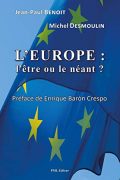
"L'Europe : l'être ou le néant ?" by Jean-Paul Benoit and Michel Desmoulin, published by PML, 2019
“L’Europe, l’être ou le néant. A title with Sartrian echoes, but with a Camusian background. A book that is more along the lines of the federalism advocated by Camus in 1945 than of Sartre’s social revolution. Its content: a dialogue between two French and European citizens: on the one hand, my friend Jean Paul Benoit, who lived and collaborated with me during my Presidency of the European Parliament, has a decisive moment in our history – the period from the fall of the Berlin Wall to the transition to the European Union with the Maastricht Treaty. On the other hand, Michel Desmoulin, whom I got to know by reading his commitment and his testimony. From the outset, it is an interesting book to read because it is a Socratic dialogue between two long-time European activists, who express themselves from their experience as architects and masons of this great and noble cause”.

"BREXIT - Der Binnenmarkt im Rückwärtsgang" by Karl von Wogau, 2019
“In this book I try to show how many decisions were necessary in various fields to create the Europe of open borders. From this, one can draw conclusions about the political energy and time that will be necessary for one of the member states to unwind the single market backwards. In the current situation of the upcoming Brexit, it is necessary to create a coherent concept for the future of the European Union. In my view, we need to turn Europe from its head to its feet. For this, we need a three-speed Europe. The European Single Market, which should also be open to the European Union’s neighbours, the Eurozone, whose membership must be made subject to strict conditions, and a “real” European Army, which should be financed from the European Union’s budget.”
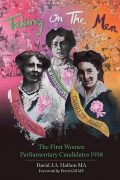
"Taking On The Men: The First Women Parliamentary Candidates 1918" by David J. A. Hallam, Brewin Books, 2018
The first General Election after British women won the right to vote in 1918 was almost an entirely male affair. It was held immediately after the Armistice which ended the First World War. With just days to spare before the old Parliament dissolved, legislation was rushed through that also enabled female candidates to stand. Women scrambled to be nominated, but only 17 were able to get their names on a ballot paper. Ranged against them were all the forces of tradition and rigid conservatism, determined that women candidates should fail.
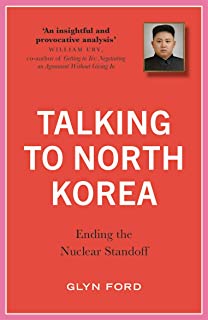
“Talking to North Korea: Ending the Nuclear Standoff” by Glyn Ford, published by Pluto Press, 2018.
“This is a serious and well-researched book. Glyn Ford, a former leader of British Labour MEPs, has put his experience from over fifty visits to the DPRK (North Korea) to good use in an update to his 2008 book “North Korea on the Brink: Struggle for Survival”
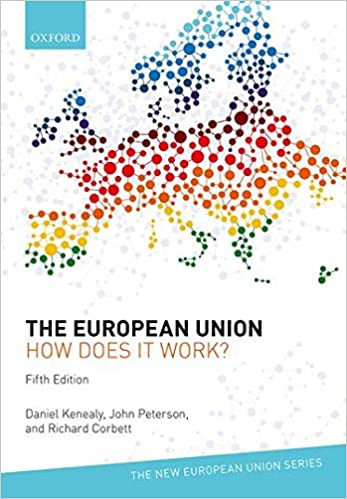
“The European Union: How Does It Work?” by Richard Corbett, Daniel Kenealy and John Peterson, published by Oxford University Press, 2018.
It is the perfect concise introduction to the European Union for those beginning to study the subject.
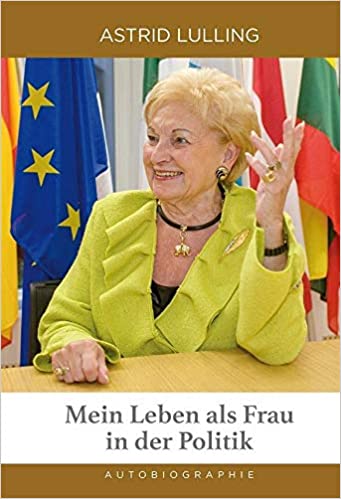
"Mein Leben als Frau in der Politik: Autobiographie" by Astrid Lulling, published by Editions Schortgen, 2018
Astrid Lulling, born to a labours family in Schifflingen, is a living legend. From 1949 onwards, she experienced as young labour unionist the foundation of the European Coal and Steal Community. As socialist parliamentarian after 1965 she fought for the equality between men and women in the European Parliament and the Chamber. In 1970 she was elected the first female mayor in a local community in Luxembourg. Astrid Lulling was the figurehead of the Socialist party until 1982 before Pierre Werner was winning her over for the Christian- Democratic party. She was loved, hated, and experienced ups and downs during her political career. Despite the hostilities, she was one of the most popular politicians until her resignation in 2014. The Bar at the European Parliament in Brussels is named after her: “Astrid Lulling Lounge”. In this book she wrote down her memories…with a twinkle in the eye.
This book is available through www.editions-schortgen.lu

“La finanza per la società. Dal dominio al servizio. Cenni sulla necessità di una trasformazione. Ediz. italiana, tedesca, inglese, spagnola e francese” by Vitaliano Gemelli, Lorenzo de Medici Press, 2017
This essay is intended as a contribution of ideas on the hypotheses of evolution and development of contemporary society in the perspective of the next fifty years. It presents a political vision of the existing problems, without presuming to have sociological or economic expertise, but only on the basis of a sensitivity deriving from experience in national and European institutions. The political events of the present day are intertwined with significant economic events such as the crisis; they must be explored in all the aspects inherent to human society, without neglecting the multiple sensitivities that each person brings as positive baggage to enrich society. Ultimately, any action taken by the institutions must aim at the human growth of each person and the enhancement of their precious originality. The essay dwells on the worldwide problem of sovereign debts and proposes a solution hypothesis with the aim of decoupling them from the financial market, to prevent states from suffering the effects of economic and financial crises, as has happened recently. The book also includes translations of the text into English, German, French and Spanish.

“All the Qur'an in 100 pages: By a non-Muslim for non-Muslims” by Amédée Turner, Independently published, 2017
Everything in the Qur’an is explained and put in the context of the modern and ancient world, especially the relationship between Islam and the West. The descriptions are illustrated and underpinned with 400 of the most telling quotations from the Qur’an. Includes a special study of the relationship between ISI and the provisions of the Qur’an. Everything that is actually and undeniably in the Qur’an is incontestable in Islam. All other Islamic writings are debatable.
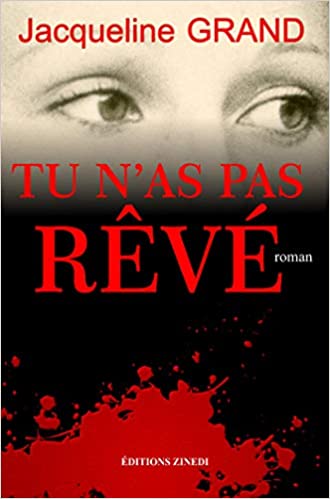
“Tu n'as pas rêvé” by Jacqueline Grand, published by Zinedi, 2017
In Marseilles, against a backdrop of amorous passions and blood crimes, the beautiful and mysterious Lydie is a forensic doctor. Her fiancé and two of her friends receive anonymous letters informing them of their impending death in reprisal for an act they allegedly committed ten years earlier. Will the investigation led by Commissioner Gastaud save them? Will it allow the author of these letters to be arrested in time and prove their innocence? In a race against time and death, the various characters will be confronted with small groups whose only law is the rules they have set for themselves. A visit to a secretive and mysterious Marseilles where nothing and nobody is what it seems to be.
Jacqueline Grand was born and raised in Marseille. A woman of conviction, she has lived several lives (lawyer, member of the European Parliament, etc.) and today devotes part of her time to writing. Jacqueline Grand has a taste for adventure and discovery, she has the art of cultivating mystery and secrecy.

“United for the Better: My European Way” by Hans-Gert Pöttering, published by John Harper Publishing, 2016
A widely popular and determined leader in the European Parliament, the Hans-Gert Pöttering is a staunch defender of the institutions created to give the “Community method” expression – for, as he writes, quoting Jean Monnet, “nothing is possible without men, but nothing is lasting without institutions”. At this point of danger of European fragmentation, United for the Better is a timely reminder of all that has been achieved and the perils of forgetting our common history.The book’s title comes from the words of the Berlin Declaration of 25 March 2007: “We, the citizens of the European Union, have united for the better”.
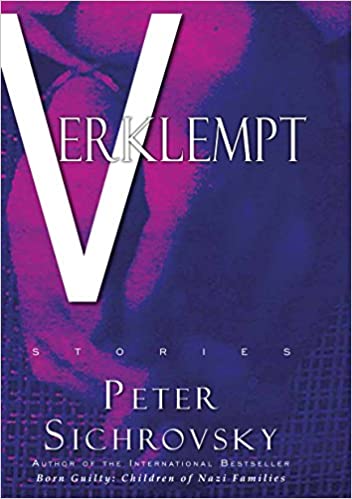
‘Verklempt’ by Peter Sichrovsky, published by DoppelHouse Press, 2016
‘Verklempt’, Yiddish slang, means ‘choked with emotion.’ In his latest collection of stories, internationally best-selling author Peter Sichrovsky aggressively dismantles post-Holocaust Jewish identity. These are love stories where love is a bitter pill, a joke, a missed chance at happiness, a secret, a ghost, or a longing to be with a person one cannot even remember. Sichrovsky writes without embellishment, spare outlines of characters that feel familiar, and infuses them with dark humor and tragedy. With characteristic inquisitiveness and provocation, Sichrovsky delivers a delightful collection that entertains and inspires us to tears, laughter, revelations. Darkly humorous, absurd, sometimes tragic and erotic. Foreword by award-winning playwright Ari Roth.
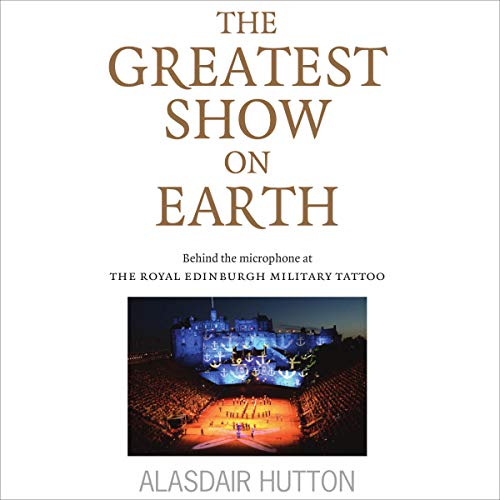
“The Greatest Show on Earth: Behind the Microphone at The Royal Edinburgh Military Tattoo” by Alasdair Hutton, published by Luath Press, 2016
The Royal Edinburgh Military Tattoo is one of the greatest shows on earth. Around 220,000 people attend each year and it is viewed on TV by 100 million. This book is the story of the Tattoo, narrated by Alasdair Hutton and prefaced by a short history of tattoos pre-Edinburgh and a history of the Tattoo pre-Alasdair. With an ever-changing cast of over 1,000 performers, each year’s show is unique. Some elements remain unchanged, such as the spine-tingling Lone Piper playing on the Castle ramparts, the cacophony of sound that is the closing massed pipes and drums, and the welcoming voice of Alasdair Hutton.
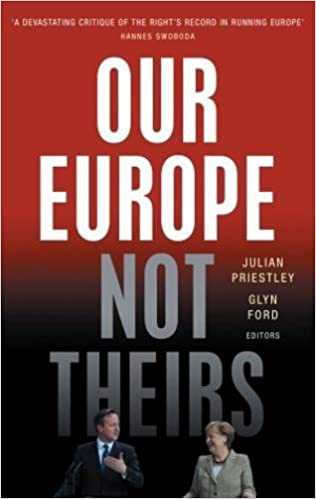
"Our Europe, Not Theirs" by Julian Priestley and Glyn Ford (Eds), published by Lawrence & Wishart Ltd, 2016.
A no vote in the referendum would be disastrous not only for the left, but for the country as a whole and for European politics. The editors argue, in the new introductory chapter to this 2nd edition., that the success of the left in Britain depends on successfully working with its European counterparts to shift the political balance in the EU. Contributors argue that the UK left should work with other European progressives to create a programme for economic, social and ecological renewal for Europe in the world. They also offer a radical agenda for change and reform in Europe. They discuss austerity’s throttling of Europe’s growth prospects; suggest how to respond to the return of poverty and rampant inequalities; and how to challenge unaccountable corporate power. They also engage critically with Europe’s environmental policies, which have been long on promise and short on delivery; its short-sighted immigration management; and its sacrifice of fair trade in the name of an ideological commitment to unbridled globalisation.
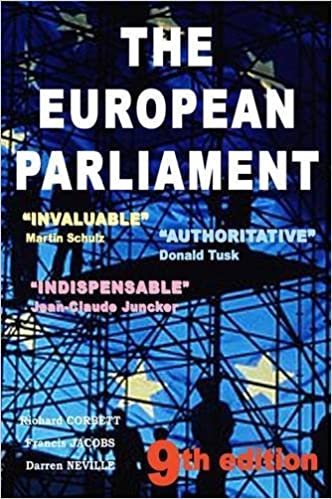
"The European Parliament " by Richard Corbett, Francis Jacobs and Darren Neville, published by John Harper Publishing, 2016.
First published in 1990, for more than a quarter-century this has been the premier textbook on the European Parliament. This new 9th edition – the first for five years – has been fully updated and expanded, including all the familiar features and all recent significant developments. The book systematically and clearly covers every aspect of how the Parliament is elected, its internal structures and procedures, its powers and how it relates to the other EU institutions. It is written by insiders with vast accumulated experience of how the Parliament really works, with extra input from dozens of specialists within the Parliament. “An invaluable guide to the institution’s history, power and politics.” (Martin Schulz, President of the European Parliament)”Explains with utmost clarity how it all works. It is an indispensable tool for anyone interested in or dealing with the European Parliament.” (Jean-Claude Juncker, President of the European Commission)”This book is the authoritative guide to the European Parliament.” (Donald Tusk, President of the European Council)
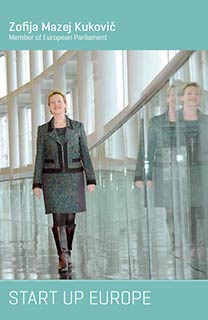
“Start up Europe” by Zofia Mazej Kukovič, self-released, 2016
“Ms. Zofija Kukovič offers a comprehensive account of her activities during her mandate in the book “START UP EUROPE”. The book is also of use to present and future MEPs, especially for those that wish to pursue work in the fields that Ms. Kukovič has specialised in.”
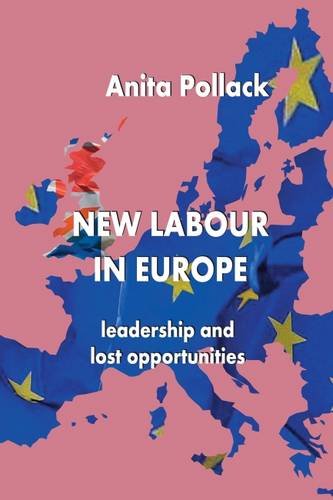
“New Labour in Europe: Leadership and Lost Opportunities" by Anita Pollack, John Harper Publishing, 2016
Once again with a Foreword by Neil Kinnock this book covers the period from the election of Tony Blair’s government in the UK in 1997, to 2010. It looks briefly at the twenty years prior to that and in an Afterword looks briefly at 2010 to 2015. It analyses the failure to inform and educate the British public about the merits and challenges of EU membership and relates that deficiency to the way in which the EU remained a misrepresented mystery to many. It offers insights into the attitudes towards the EU in government that at least in part paved the way to the referendum of 2016 leading to the UK’s departure from the EU in 2020. The role of Labour MEPs, by then largely in favour of the EU, is a large part of the book, which was also endorsed by Enrique Baron.
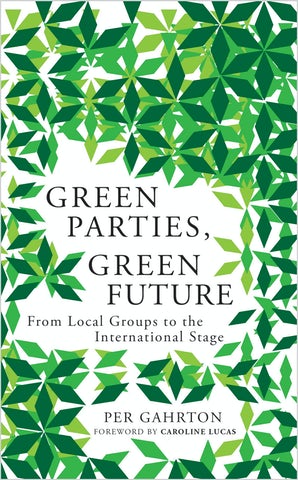
“Green Parties, Green Future. From Local Groups to the International Stage’ by Per Gahrton, published by Pluto Press, 2015
Over the past four decades the world has seen a ‘Green awakening’. Green parties have been elected to parliaments and councils all over the world, and in many cases have played a part in national and local government. A common set of Green priorities has been promoted by Green internationalisation and these parties are playing an increasing role at all levels of political decision-making. Will the Green awakening continue or will Greens be corrupted by power? What impact has Green politics had? Will Green thinking be able to compete with other ideologies in coping with the problems of the 21st century? Green Parties, Green Future analyses these issues on the basis of the experience of Green parties from all parts of the world.
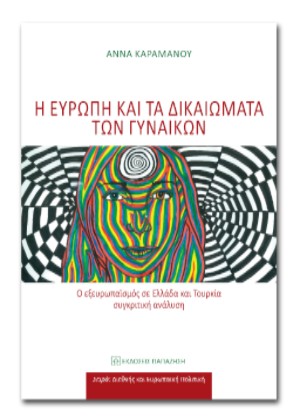
“Η ΕΥΡΩΠΗ ΚΑΙ ΤΑ ΔΙΚΑΙΩΜΑΤΑ ΤΩΝ ΓΥΝΑΙΚΩΝ (EUROPE AND THE RIGHTS OF WOMEN)." The Europeanization in Greece & Turkey. Comparative
analysis by Anna Karamanou, published by Papazisis Publications, 2015 (Greek only)

‘Politeisti & assassini (Polytheists and murderers)’ by Cristiana Muscardini, published by Ulisse Edizioni, 2015 (Italian only)
The book is dedicated to His Excellency Dr. Yusuf Mohamed Ismail Bari-Bari, Somalia’s Ambassador to the United Nations, and to all the victims of terror. This book shows how dangerous the silence of the international community and also of Italy is in so many historical episodes, especially in the fight against terrorism, which requires a clear strategy, a transparency of common intentions and firm and concrete decisions. There can be no cultural or religious recognition where the universal rights of the human being are violently denied. The Western world bears a heavy responsibility for not intervening in those places in the world where the violent ‘prophets’ of hatred sow their word of death, where falsified religious dogma interpreted only to kill, oppress and sow ignorance takes the place of the law, and where freedom, democracy and human and religious respect are trampled underfoot.
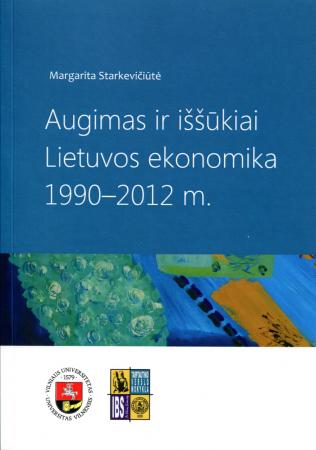
“The Stormy Years of Reforms” by Margarita Starkeviciute, Vilnius, 2015 (E-book)
On March 11, 2015 Lithuania celebrated the 25th anniversary of the Restoration of Independence, a milestone from a Soviet country on the way to a EU member State. Lithuania’s success formula can be defined in a very simple way: learning by doing. The book unveils this learning by analysing the details and it contains some articles already published in some newspapers. The book includes also the first Lithuanian market analytical data prepared by the Central Securities Depository of Lithuania, where the author led a research team.
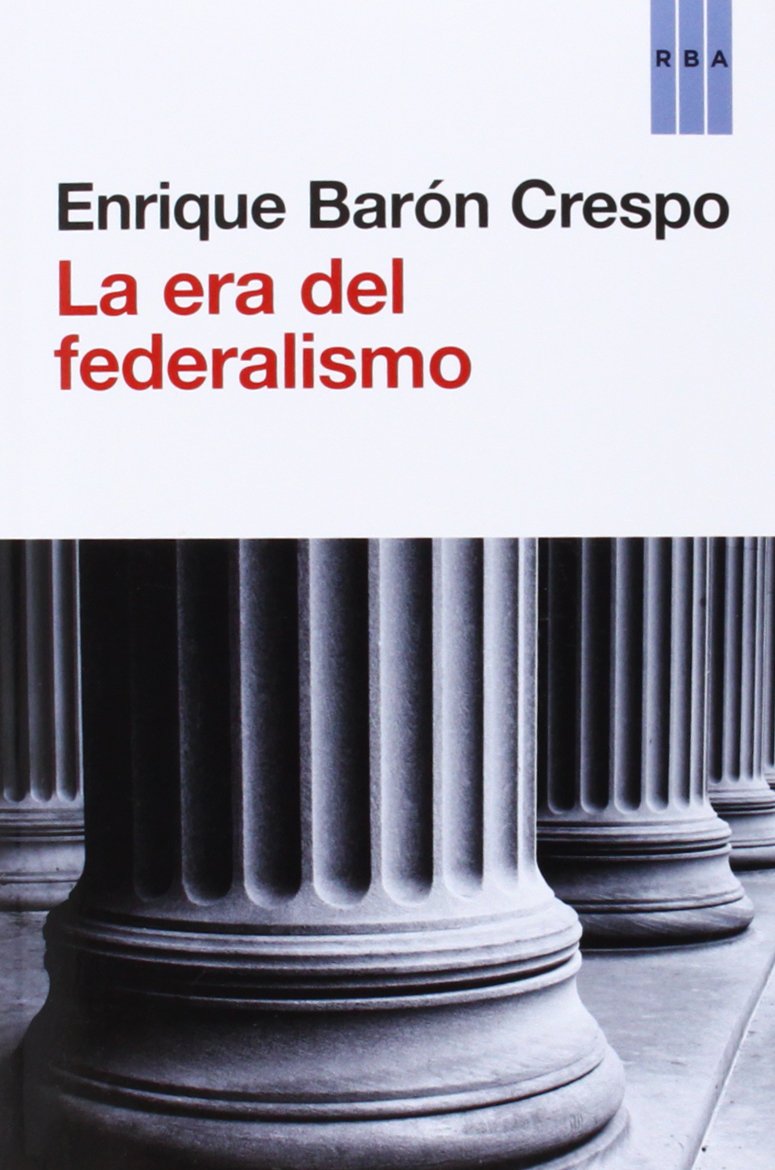
“La era del federalismo” by Enrique Barón Crespo, RBA Libros Barcelona, 2014
In recent years, given the need to find the most effective and appropriate formulas for government in today’s increasingly complex societies, the debate on the validity of federalism as a political option has inevitably been rekindled, both in Spain and in Europe. The great majority of the world’s great powers have successfully developed a democratic system that is federal to a greater or lesser degree, and those that have not yet done so are beginning a progressive process of decentralisation, which demonstrates the validity and versatility of this form of distribution of powers and competencies.
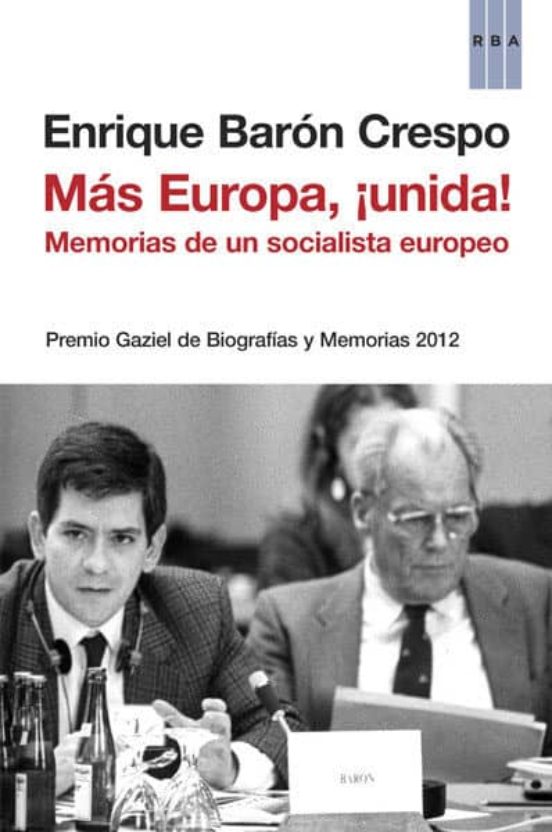
“Más Europa, ¡unida! memorias de un socialista europeo” by Enrique Barón Crespo, RBA Libros Barcelona, 2013
Enrique Barón Crespo offers us in this book an account of a life dedicated to political action as well as a well-structured and contextualised picture of a crucial period and an accurate and in-depth reflection on aspects of political practice, change in Spain and the construction of Europe as an economic unit and a supranational social democracy. A member of the constituent Cortes, he joined Felipe González’s first government as a minister and, after leaving the executive in 1985, began a long journey in the European Parliament that led him to its presidency between 1989 and 1992, the exciting years that followed the fall of the Berlin Wall.

“My Personal Story: In and Out of Europe” by Andrew Pearce, Matador publisher, 2013
This book tells the story of Andrew Pearce MEP (Member of the European Parliament), who represented half a million people living in Merseyside and Cheshire at Strasbourg for ten years. It’s a human story, a down to earth account of what the daily job of an MEP is like. When Andrew applied to be a candidate in the first direct elections to the European Parliament in 1979, he could not have foreseen the places he would visit, the people he would meet and the actions he would be part of. Andrew had no knowledge that he’d be arrested ‘at gunpoint’ on a ferry on the Zambezi, bitten by a monkey in Sierra Leone and spend a night in a former Portuguese Army brothel in Angola. He expected to be debating with some of the big figures in European politics but could not know that they would include Barbara Castle, Ian Paisley, Pierre Pflimlin, Otto von Habsburg, French right wing leader Jean-Marie Le Pen and British European Commissioners including Leon Britain and Roy Jenkins. My Personal Story – In and Out of Europe is the entertaining, informative and personal recollections on the daily life of one MEP. It is a fascinating read for anyone curious about the EU and Britain’s role within it.

"Gladio, Nato's Dagger at the Heart of Europe: The Pentagon-Nazi-Mafia Terror Axis" by Richard Cottrell, Progressive Press, 2013
“The book is a kaleidoscope of incidents, most of which are apparently interconnected (according to Richard). However, there is a common background to most of them – the ‘usual suspects, are the CIA, MI5, the KGB and the Vatican. Strangely, the American Religious Right does not appear anywhere in the book! Some of the plots and sub plots described will be familiar albeit somewhat faded by the mist of time. An exception is the section on Bulgaria and the assassination in London of Georgi Markov who appears in Richard’s pages as a sort of Bulgarian James Bond with a licence to enjoy rather than kill due to the patronage of Bulgarian strongman, Todor Zivkov. The book is a good read provided you do not believe it all (or even half of it). It would not be out of place in the fiction section of any library.”
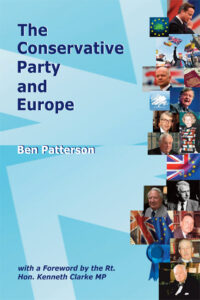
"The Conservative Party and Europe" by Ben Patterson, John Harper Publishing, 2011
“Anyone interested in the evolution of the United Kingdom’s relationship with the European Union will find this book a good guide not only in its treatment of the internal politics of the Conservative Party but also in its explanation of the historic evolution of EEC to EC and now the EU. I recommend the book to all of Ben Patterson’s British colleagues in the European Parliament irrespective of party affiliation as well as to the wide range of puzzled opinion formers outside the 4 countries of the United Kingdom.”
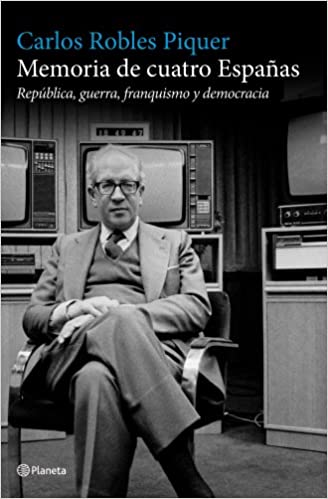
"Memoria de cuatro Españas: República, guerra, franquismo y democracia", by Carlos Robles Piquer, Editorial Planeta, 2011
“This book is the autobiography of a European who has had the good fortune to have reached the age of 85 whilst remaining reasonably lucid. It has been published in Spanish in Barcelona, by Planeta publishing house, the largest and strongest Spanish language publishing house that also publishes works in Catalan. Planeta is, in addition, one of the largest publishing houses in the world. The book spans 80 years of Spanish life and its title refers to the Second Republic (1931-36), to the terrible Civil War lasting from 1936 to 1939, which was caused by poor government during that Republic, to the long period of the Franco dictatorship which lasted until 1975, and to the democracy that fortunately we have been enjoying since then, and which is I believe inextricably linked to the Constitutional Monarchy headed with great talent by Juan Carlos I, who one day will be succeeded by his son Prince Felipe.”
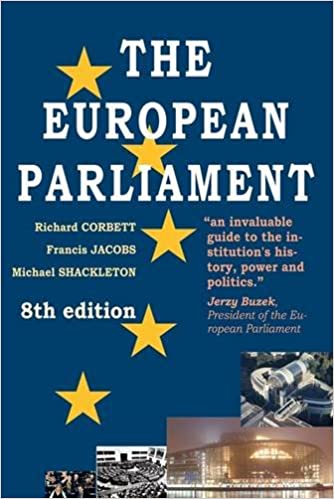
"The European Parliament" by Richard Corbett, Francis Jacobs and Michael Shackleton, published by John Harper Publishing; 8th Revised edition (2011)
“The book proceeds very logically through framework, working structures, the powers of the parliament and how they are used. The first two sections have developed gradually over the years but the third section has been extensively rewritten in the light of treaty changes and the post Lisbon scenario. Of particular interest are the sections outlining how the legislative procedure works and how in detail the parliament’s powers have evolved, where they now stand and how they can be used. I suspect that many serving members and officials will be consulting this book to check up on exactly what the position is in different areas of parliament’s competences. In conclusion, an excellent read well worth buying.”
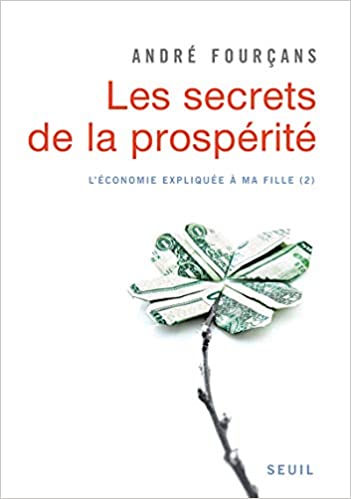
"Les Secrets de la prospérité. L'Economie expliquée à ma fille (2)" by André Fourcans, published by SEUIL edition, 2011
“The new book is presented as part 2 of ‘Economics explained to my daughter’. It widens horizons and abandons the question and answer format that his previous books employed. Presumably his daughter has grown up since the first book published in 1997! It also acknowledges that the world has moved on, and economics with it. For example, his new book includes sections on ecology, climatic change, living standards, development, growth and its possible limits and several others. ‘The Secrets of Prosperity’ (Les secrets de la prospérité) is a ‘good read’. It is also reassuringly sceptical about some of the fashionable doubts cast on ‘competition’ and ‘globalisation’.”
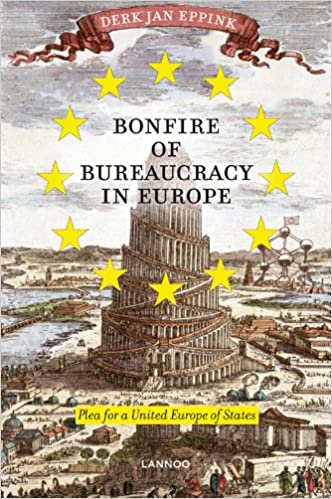
"Bonfire of Bureaucracy in Europe: Plea for a United Europe of States" by Derk Jan Eppink, published by Lannoo, 2010
“The author makes a strong plea for the cornerstone of European thinking: the internal market. This should remain the driving force behind European integration. In order not to lack behind on the world level Europe requires venture capital, innovation, enterprise and a smaller government. Not a United States of Europe, but a United Europe of States. In conclusion, a book very worth reading, written with a touch of mild irony and exaggeration. But thoroughly supported by facts and written by a politician who is well placed to give an expert view.”
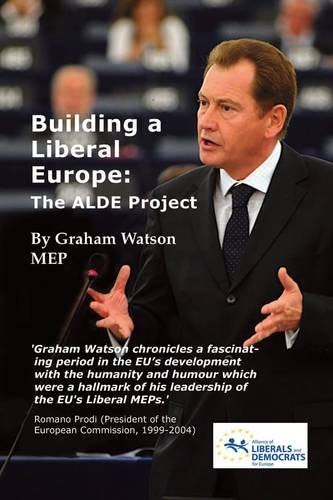
"Building a Liberal Europe" by Graham Watson, John Harper Publishing, 2010
“In the first decade of the 21st century the Liberal group (known as the Alliance of Liberals and Democrats for Europe – ALDE – from 2004) emerged as a powerful third force in the European Parliament, challenging the bi-polar order of Conservatives and Socialists.Graham Watson shows how this happened, detailing the Liberal impact on a whole range of policy issues at EU level and the important linkages with Liberal success at national level. He concludes that ‘the potential for further growth of the European Liberal centre remains greater than at any point in the last 100 years’.Politics and personalities combine to make this a richly informative and insightful insider’s account which will be of interest to all who follow EU affairs and Liberal politics.”
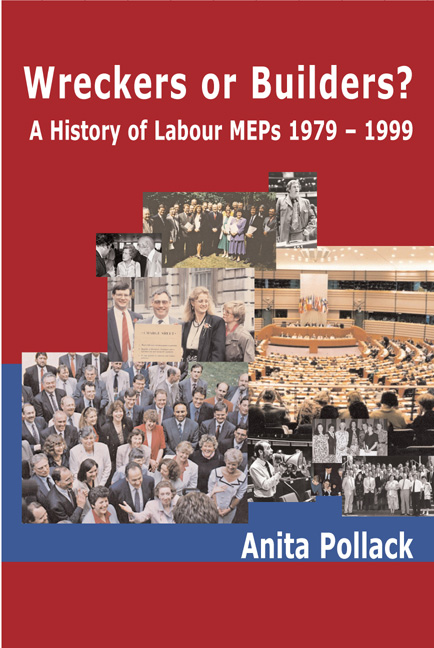
“Wreckers or Builders?: A History of Labour Members of the European Parliament 1979-1999” by Anita Pollack, John Harper Publishing, 2009
With a Foreword by Neil Kinnock, this book traces the turbulent years of Labour MEPs during the first 20 years of the elected European Parliament. It was a time when the UK Labour Party policy on membership of the EU began by being against membership and changed in the mid 1980s to being more positive. The Labour Group was led for most of that time by veteran UK politician Barbara Castle but was at that time riven with opposing views and there were many internal battles. This is the only history of Labour MEPs during that period.
"Massimo Baldi (1927-1986). Architetto e urbanista toscano del Novecento" by Monica Baldi, Centro Di Editore Florence, 2008
Superbly illustrated with great wealth of images, the monograph on the Tuscan architect testifies to Massimo Baldi’s impressive contribution to the history of architecture and urban planning of the twentieth century. The project archive, an immense patrimony made up of projects, drawings, studies and documents, has been declared of cultural interest by the Archival Superintendency for Tuscany. His polyhedric political and professional commitment is highlighted by esteemed architects. The authoress pauses to outline his professionalism, his communicative spirit, his vitality and his strong human charge that he expressed in many ways. Of particular interest to scholars is the part relating to the archival fund deposited in the State Archives of Florence and the reproduction of about thirty projects.
“The historical memory on her father Massimo that Monica Baldi deposited, with great foresight, in the State Archives represents an important contribution to the knowledge of that history that cannot be ignored by the institutions and the ruling class of an advanced country.”
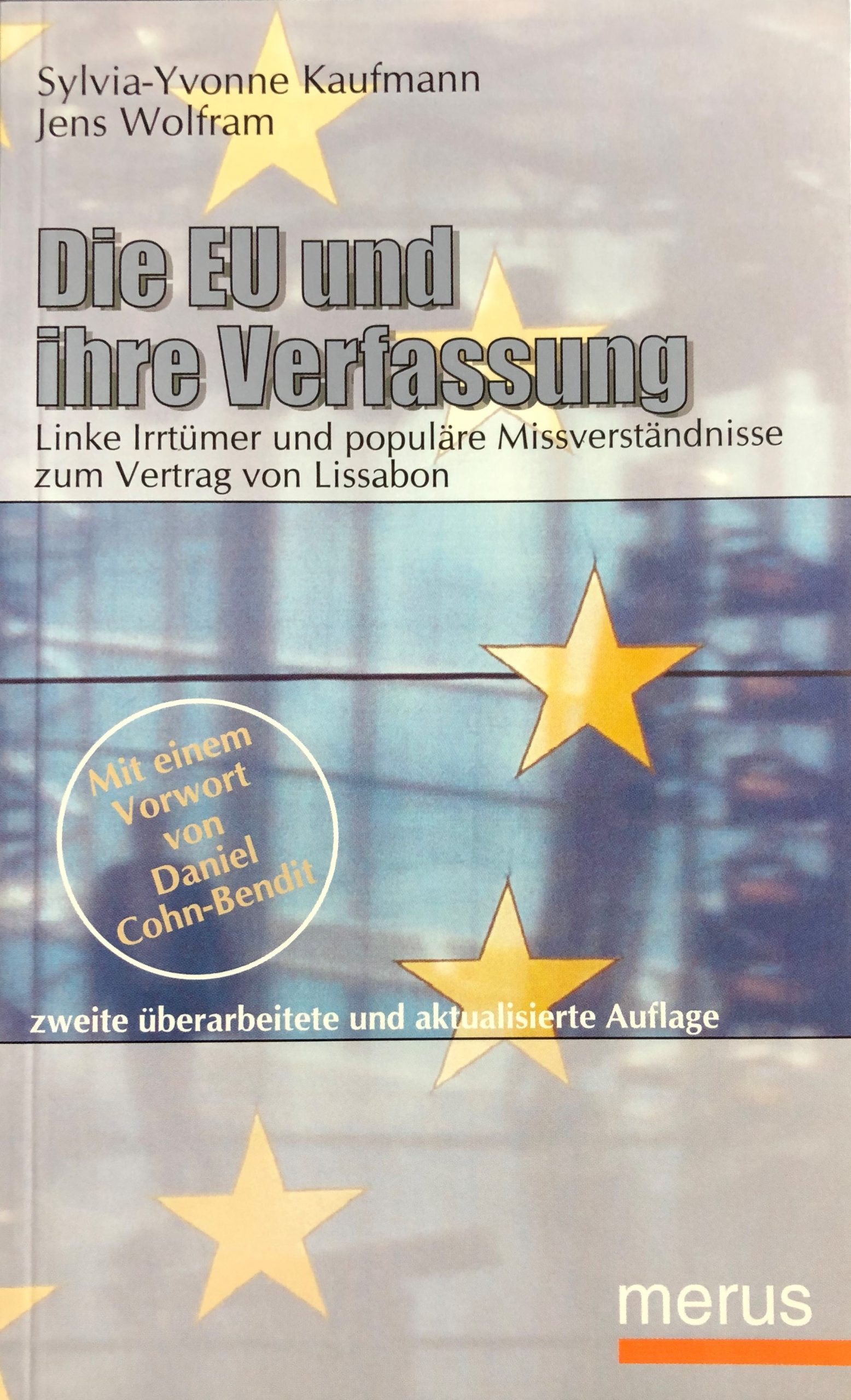
"The EU and it‘s Constitution. Left errors and popular misunderstandings about the Lisbon Treaty" by Sylvia-Yvonne Kaufmann / Jens Wolfram, Verlag Hamburg, 2008
This book was written in the midst of heated public debates on European Constitution. As AFCO-member and member of European Convention I’ve put the focus on countering the outrageous fakes circulated mainly by left wing forces.
The book starts with an overview about the European Constitutional process from the Declaration of Laeken in 2001 until the signing of the Lisbon Treaty in December 2007. It explains the European Convention in 2002/03, analyses the No-votes in France and the Netherlands in 2005 and describes the restart of the Constitutional process with the Berlin Declaration in March 2007.
The main part is written in a fictitious dialogue stile. Citing dozens of various fakes about the EU and it’s Constitution / Lisbon Treaty the authors argue by explaining Treaty provisions in detail and in easy understandable language. In his preface Daniel Cohn-Bendit, co-chair of the Green group in European Parliament, underlines the importance of standing up against anti-European populism.

"Europa, o Continente Pensado (The European Continent, a subject of reflection)" by Camilo Nogueira, Editorial Galaxia, 2008
“A large part of the book is dedicated to his monitoring, in his capacity as member of Parliament’s Committee on Constitutional Affairs, of the preparation of the draft European Constitution and the vicissitudes of its ratification and its transformation – not exempt from problems or the role of chance – into the Treaty of Lisbon. Mr Nogueira believes that the new Treaty marks a step forward and opens up new prospects for the ‘nations without a state’ and their languages. All in all, this volume, which is supplemented by a collection of its author’s plenary speeches, offers an original analysis of a project as original in itself as is the European Union.”
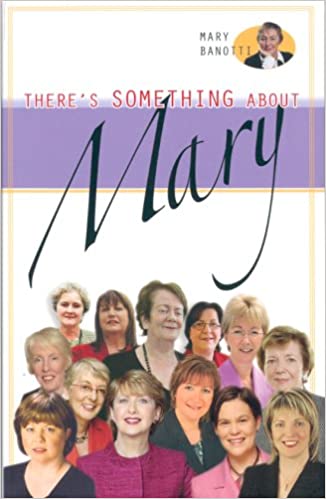
"There's Something About Mary" by Mary Banotti, Currach Press, 2008
“Mary Banotti has written a fascinating book about Irish politics based on interviews with 13 prominent ‘Marys’ (14 including her own interview with her former school teacher, John Flanagan). The interviewees were from across the spectrum of Irish politics. The majority were Fianna Fàil, two Fine Gael, one of whom is Mary herself, one Labour, one Green and one Sinn Féin. Interestingly, there is little in the interviews revealing the differences between the parties represented. What is striking is the similarity between the early battles of women to get elected to the Irish Dàil and the difficulties of combining a political career with the responsibilities motherhood. In short, an easy, chatty, interesting read for anyone interested in politics whether male, female or not called Mary!”
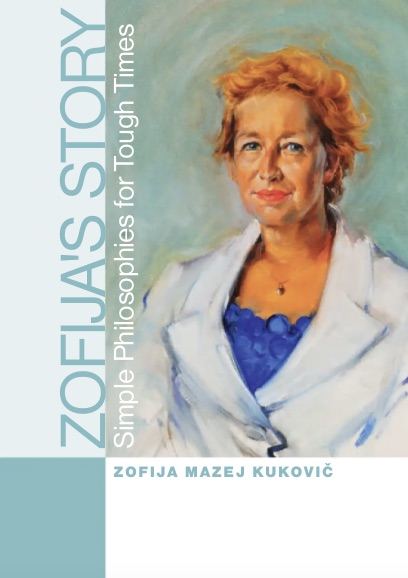
"Simple philosophies for tough times“ by Zofia Mazej Kukovič, self-released autobiography, 2007
The autobiography ‘Simple philosophies for tough times’ was published in 2007 by Zofija Mazej Kukovič and can be consulted on her website.
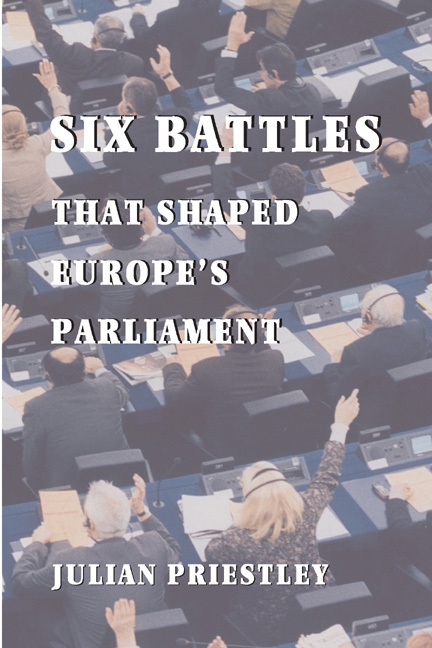
"Six Battles that Shaped Europe’s Parliament" by Julian Priestley, John Harper Publishing, 2007
“After I was selected to be a Member of the European Parliament in 1978 a colleague asked me why I wanted to go to a place that had no power. I replied that if you put 435 politicians into a parliament with nothing else to do, they would soon manage to collect themselves some power. Julian’s book shows some of the many developments which led from the relatively toothless parliament of 1979 to today’s powerful institution. Overall Julian has done an excellent job of setting out dispassionately the facts behind some of parliament’s key battles. Apart from former Members who will find this fascinating, it should be required reading for any one studying the European institutions, for academic or career linked purposes.”

